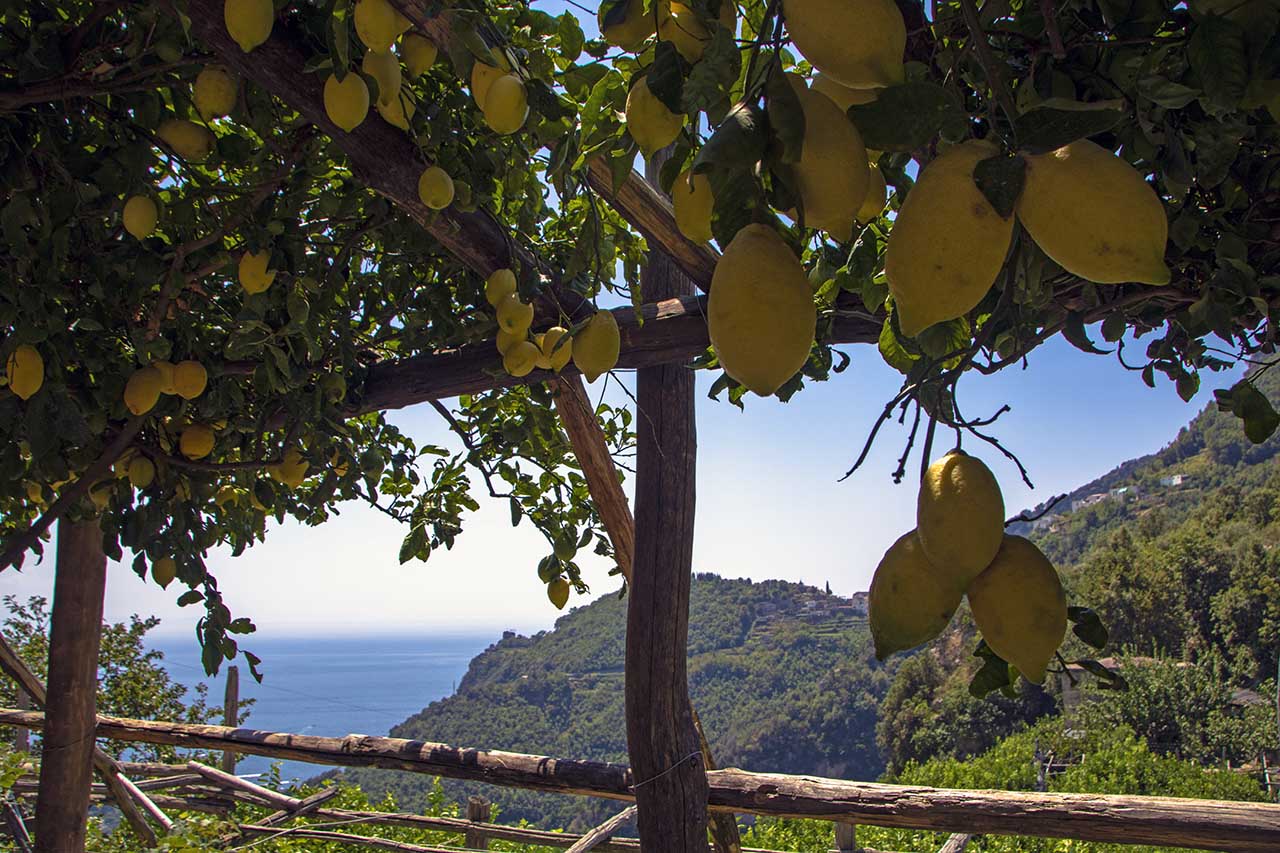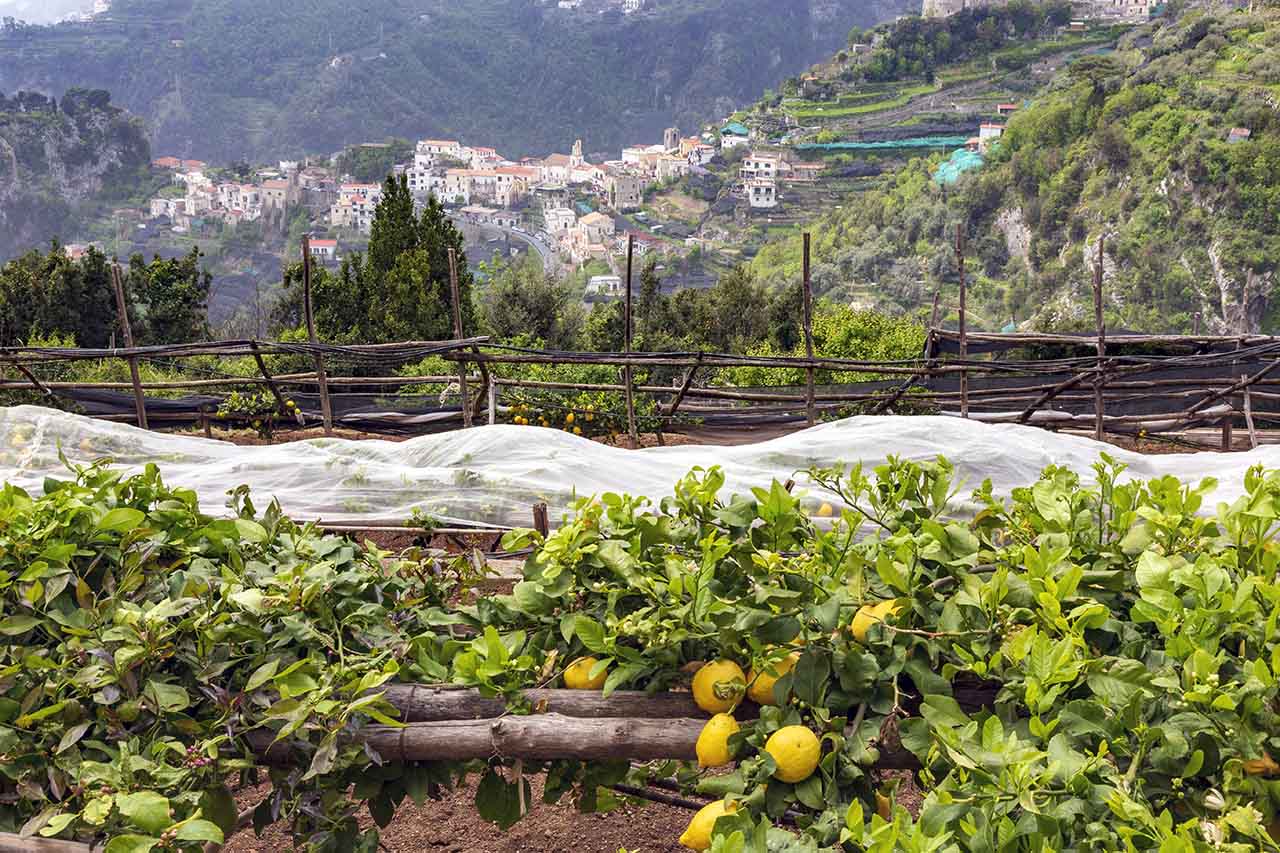The rediscovery of agricultural work is now the new vanguard for land preservation.
September 22nd, 2020. By Priscilla Santos da Silva
Luigi Aceto, aka Gigino, a gardener from Amalfi, wakes up every day at five o’clock. He takes his belt and sees his lemon trees, his children, as he calls them. A daily action that becomes a ritual that speaks about the love and the wisdom of a long tradition.
“Almost all my brothers and I used to work in the gardens. We started with a commitment to honor the past, thinking about the future,” Gigino, 86, the eighth of thirteen children, tells us. As he tells his story, proud of his accomplishments, he fears that young people will not carry on this craft and that the tradition and culture of the land, typical of this area, may fade with time. If this were to happen, the negative impact on the area’s sustainability would be devastating.

Terracing: a natural resource
The Amalfi Coast is a delicate territory with gardens representing its heart. The legacy of dry stone walls, more commonly called terracing, is a method that comes from Arab influence, an ancient technique that allows the land to be irrigated. Cascade watering, an irrigation system that allows water to flow from the top of the hill to the various terraces, keeps them lush.
“Hydrogeological balance is important because it promotes the stability of the land,” Alessandro Milano, a cultural heritage expert, tour guide, and young gardener, tells us. “The structure of the terraces guarantees the sustainability of the territory because by giving life to the lemon groves, we manage to avoid natural disasters. Abandoned gardens and unclean drainage canals increase the risk of landslides and floods,” Milano continues.
Taking care of the land is a crucial practice at this delicate time when climate change is harming the entire ecosystem. Carrying on these ancient crafts is vital for the well-being and protection of the natural landscape and its inhabitants.
#Amalfi365
During the pandemic, young people rediscovered their passion for gardens. For example, Emily Boothroyd and Fabio Ingenito of Minori took care of their friends’ garden that was partly abandoned. They took care of it and brought it back to new life.
Beyond individual initiatives, what has given a positive boost to the rediscovery of the work of the land is #Amalfi365, a project under the regional Benessere Giovani program aimed at training qualified operators for the tourism sector and the provision of services to an industry that is the basis of the local economy.
An initiative promoted by the municipality of Amalfi, the association SoliEventi, Eurobridge, teatraleKaleidos, San Michele, and ASD Amalfi Coast Sport &More and co-financed by the European Union within the Por Campania FSE 2014-2020. Official partners in that initiative are NH Hotels and Azienda Agricola Salvatore Aceto, the latter of which has set up an agricultural incubator structured as a training course led by Salvatore Aceto, Gigino’s son.

A glimpse into the future
“I never imagined the hard work behind it. Hard work that is repaid with the satisfaction of seeing the plants grow and the fruit ripens,” says Dario Trimarco, one of the participants. This project provides an understanding of how to run a farm from a tourism and business perspective.
“I have never worked in gardens. I decided to participate in learning about agriculture and how to run a farm. I intend to invest in local tourism by perhaps creating a sustainable agritourism,” Giuliano Di Domenico Antonio, 33, a doctor of international relations, tells us. #Amalfi365 has created a network for sharing traditions, passion, and culture.
Through this initiative and many others, local youth have realized that the heritage and beauty of the Coast’s gardens are an indispensable asset for maintaining the area-a source of sustainability that creates a future.
